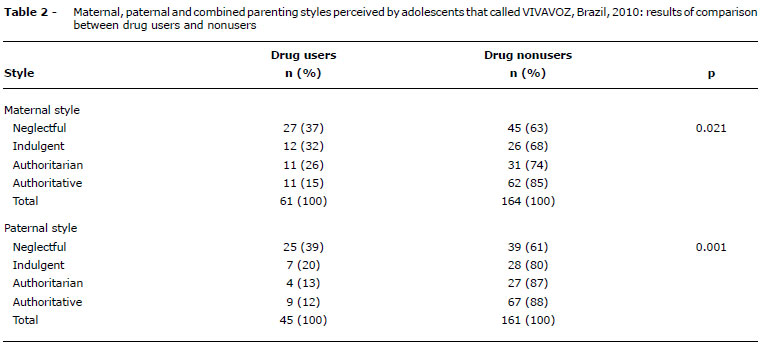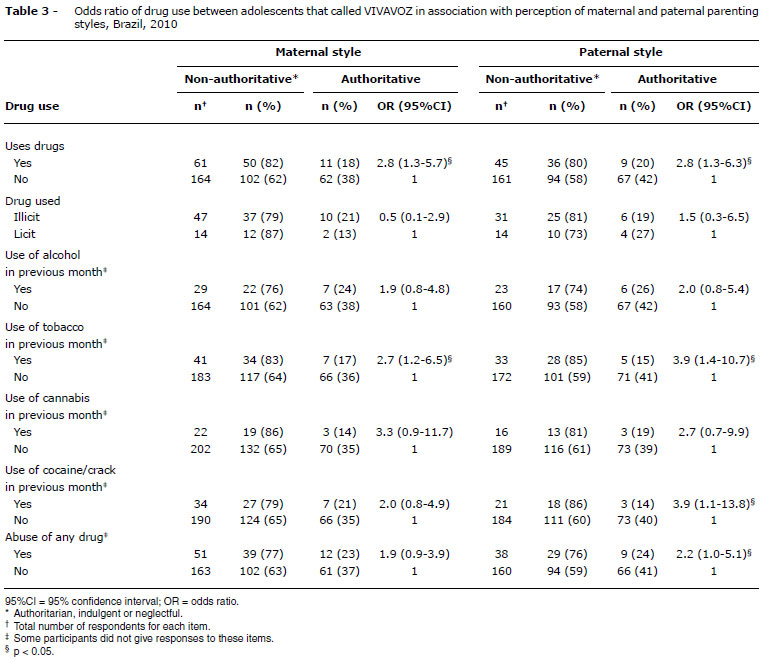OBJECTIVE: To evaluate the association between drug use and parenting styles perceived by Brazilian adolescent children. METHODS: This cross-sectional study enrolled adolescents aged 14 to 19 years that used the Serviço Nacional de Orientações e Informações sobre a Prevenção do Uso Indevido de Drogas (VIVAVOZ). A total of 232 adolescents participated in the study. Phone interviews were conducted using the Parental Responsiveness and Demandingness Scale, which classifies maternal and paternal styles perceived by adolescent children as authoritative, neglectful, indulgent or authoritarian. Sociodemographic variables were collected and an instrument was used to assess monthly drug use and abuse. RESULTS: Maternal and paternal parenting styles perceived as neglectful, indulgent or authoritarian (non-authoritative) were significantly associated with drug use (odds ratio [OR] = 2.8; 95% confidence interval [95%CI], 1.3-5.7 for mothers and OR = 2.8; 95%CI, 1.3-6.3 for fathers). Non-authoritative styles also had a significant association with tobacco use in the previous month in the analysis of maternal (OR = 2.7; 95%CI, 1.2-6.5) and paternal (OR = 3.9; 95%CI, 1.4-10.7) styles, and use of cocaine/crack in the previous month (OR = 3.9; 95%CI, 1.1-13.8) and abuse of any drug (OR = 2.2; 95%CI, 1.0-5.1) only for the paternal style. Logistic regression revealed that maternal style (OR = 3.3; 95%CI, 1.1-9.8), adolescent sex (OR = 3.2; 95%CI, 1.5-7.2) and age (OR = 2.8; 95%CI, 1.2-6.2) were associated with drug use. CONCLUSIONS: Adolescents that perceived their mothers as non-authoritative had greater chances of using drugs. There was a strong association between non-authoritative paternal styles and adolescent drug abuse.
Psychotropic drugs; adolescents; parent-child relations




